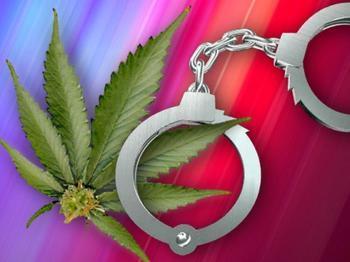News & Politics
Marijuana Legalization and the U.S. Criminal Justice System
The United States is the world’s leader in incarceration, with 2.2 million people in the country’s jail system. These figures represent a 500% increase over the last 40 years. Something is wrong here.
In addition to being the world’s leader in incarceration, ironically, the country is becoming a world leader in cannabis legalization. There must be a correlation or a solution here, somewhere.
Here we’ll take a look at some of the current statistics around marijuana in the criminal justice system, with a goal to shine a light on the positive benefits of marijuana legalization for the country’s crime.
Current Marijuana Laws & Incarcerations
As pointed out by The Sentencing Project, a non-profit, since the official beginning of the country’s “War on Drugs” in 1982, the number of incarcerated people for drug offenses grew from 40,900 in 1980 to 469,545 in 2015. By 2014, marijuana accounted for nearly half of the 1.5 million drug-related arrests in the U.S.
As pointed out by Time, the criminalization of marijuana has resulted in life sentences to nonviolent offenders, the militarization of police forces, perpetuated the idea of for-profit prisons, and shredded the Bill of Rights while costing taxpayers upward of a trillion dollars.
The Criminal Justice Policy Foundation estimates that the U.S. spends in the tens of billions in “fighting” marijuana, whether it be in working against the illegal foreign cartels or generally trying to spread the word that “marijuana is bad”.
As we all know, marijuana remains illegal in the U.S.A at the federal level, but the states are singing a different tune.
Harms of Marijuana-Related Persecution
When someone is arrested for a marijuana-related charge and are part of the many who are convicted, several disappointing results occur:
Marijuana Crime Has Been Racialized
As reported by the American Civil Liberties Union (ACLU), Black Americans are 3.73 times more likely to be arrested for marijuana possession than whites. Sadly, in some parts of the country, the ratio of black to white arrests can be as despairingly as 8 to 1.
While possession has become somewhat more lenient in small amounts across the board, law enforcement often uses suspicion of marijuana as an excuse to stop and search people.
People With Clean Records are Exposed to The System
As it’s been exposed many times before, the criminal justice system in this country leaves much to be desired. Often known for overcrowding, taking a punitive approach, and high levels of reoffense, marijuana crimes are leading people with no criminal past to enter into the underbelly of a very powerful system.
Lifelong Impacts
Possessing a criminal record for a marijuana-related offense can be a literal death sentence for one’s career or hope of gaining meaningful employment. In addition, people who are being charged with marijuana crimes are facing losing their children.
In most cases, the time doesn’t fit the crime, and it’s contributing to a shockingly high level of incarceration in this country.
State Level Changes in Marijuana and Criminal Justice
While it can’t be denied that America needs to change things within the criminal justice system and in terms of marijuana-related incarcerations, state-level legalization holds that promise.
The Drug Policy Alliance reported that during the first year of implementation of Amendment 64 in Colorado legalizing recreational marijuana, Denver saw a 2.2% decrease in violent crime rates and an 8.9% decrease in property-related crimes.
In Washington State, violent crimes decreased by 10% over the years spanning legalization.
These statistics fly in the face of Attorney General Jeff Sessions whose hesitation to accept marijuana legalization has hinged on his belief that marijuana increases violent crime.
National Waves are Yet to Be Seen
Now certain states have decriminalized possession of small amounts while allowing people to cultivate and permitting cannabis retail dispensaries can legally sell marijuana within the legal bounds. We are yet to see a global impact of legalization of marijuana on incarceration, but it’s coming.
The marijuana industry is feeling a bit less pressure after recent discussions indicate that federal crackdowns won’t be as likely as they once thought with the start of this new administration.
At the societal level, the fact that smoking a joint no longer equals a life sentence shows promising relief to the criminal justice system in the United States.

